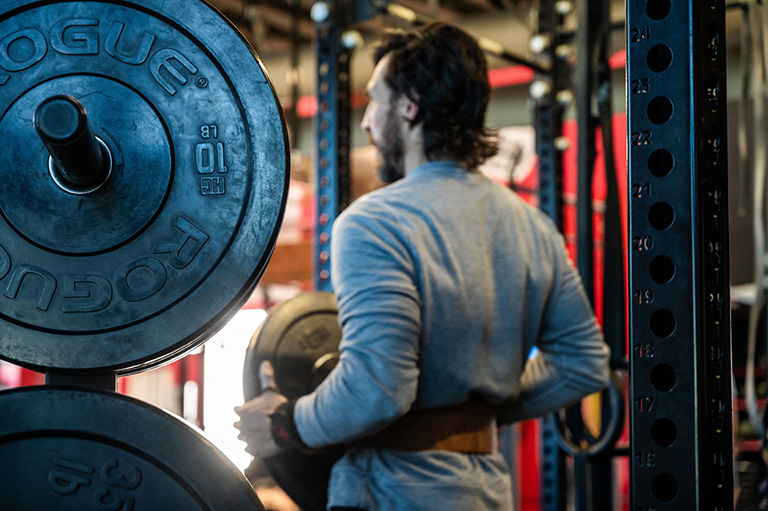Functional Fitness Insurance
Owning a functional fitness gym can be an incredibly rewarding business, helping members achieve their health and fitness goals. However, as with any business, there are inherent risks. Gym owners face unique challenges due to the physical nature of their operations, from accidents during workouts to equipment malfunctions. To protect yourself, your business, and your clients, functional fitness gym insurance is essential.

Below are the different types of insurance coverage you need for your functional fitness gym, why they’re important, and how they protect your business.
General Liability Insurance
General liability insurance is the foundation of any business insurance policy. It protects your gym from claims of bodily injury, property damage, and personal injury that occur during the course of your operations.
Also Read: A Guide To Liability Insurance For Gym Owners
Bodily Injury
Functional fitness involves intense workouts, heavy weights, and high-intensity exercises, which increase the risk of injury for members. If a client injures themselves while using equipment or participating in a class, they could file a lawsuit against your gym. General liability insurance covers medical expenses, legal fees, and settlements related to such injuries.
Property Damage
This type of insurance also covers damages to someone else’s property while they’re on your premises. For example, if a member’s phone or laptop gets damaged because a weight was dropped on it, general liability insurance would help cover the cost of replacement or repair.
Personal Injury
Personal injury claims can arise if someone feels their reputation was damaged as a result of your business activities. For instance, if a gym member feels publicly humiliated by an instructor or other staff member, they might sue for defamation or emotional distress. General liability insurance would cover legal defense costs and any settlement should the claim be successful.
Also Read: Professional Liability Insurance Vs. General Liability Insurance: What CrossFit Coaches Need To Know
Professional Liability Insurance
Even with the most experienced trainers, misunderstandings can happen. A member could claim that their trainer’s instructions caused an injury or that they didn’t achieve the results promised during their training program. Professional liability insurance covers legal costs and damages associated with claims of negligence against your trainers.
Protecting Against Miscommunication
Communication between trainers and members is crucial. If a member feels they received improper advice on workout techniques or nutrition and subsequently experiences adverse effects, they could file a claim. This insurance provides a safety net for such situations, ensuring your business is protected even if there’s a breakdown in communication.
Property Insurance
Your gym likely houses expensive equipment and technology. Property insurance covers damage to your physical assets, including fitness equipment, computers, and the building itself, from events like fire, theft, or vandalism.
Equipment Coverage
Functional fitness gyms rely on a wide range of equipment, such as kettlebells, barbells, ropes, and rigs. If this equipment is damaged or stolen, replacing it can be costly. Property insurance ensures that you can repair or replace damaged equipment without incurring substantial out-of-pocket expenses.
Building Coverage
Property insurance also covers any damage to the structure if you own the gym building. In cases of fire, flooding (depending on the policy), or vandalism, your property insurance will help cover repair costs.
Business Interruption
Some property insurance policies include coverage for business interruption. If your gym is forced to close due to a covered event (e.g., a fire or flood), this coverage can help compensate for lost income during the downtime. It ensures that you can keep paying your bills and employees while your gym is being repaired.
Also Read: Insurance Myths And Facts For Functional Fitness Studios
Workers’ Compensation Insurance
If your gym employs trainers, front desk staff, or any other personnel, workers’ compensation insurance is required by law in most states. This insurance provides coverage for employees who are injured or become ill as a result of their work.
Employee Protection
Accidents can happen, even in the most safety-conscious environments. A trainer might sprain their ankle while demonstrating a movement, or a staff member could injure themselves while cleaning equipment. Workers’ compensation insurance covers medical bills, rehabilitation, and a portion of the injured employee’s lost wages.
Avoiding Lawsuits
In exchange for providing workers’ compensation benefits, employees typically waive their right to sue your functional fitness business for workplace injuries. This helps prevent costly litigation and keeps your relationship with employees running smoothly, even after an injury.
An umbrella insurance policy provides an extra layer of protection beyond the limits of your standard liability policies. This type of coverage is essential for functional fitness gyms, where the risk of large claims may be higher due to the physical nature of the business.
Also Read: Three Types Of Workers’ Compensation Insurance Gym Owners Should Consider
Sexual Misconduct Liability Insurance
Given the close physical nature of fitness training, it’s important to protect your gym from claims of sexual misconduct. While it’s an uncomfortable subject, allegations of sexual harassment or misconduct can have devastating effects on your business.
Legal Protection
Sexual misconduct liability insurance provides coverage for legal defense costs and settlements if an employee or trainer is accused of inappropriate behavior. It’s a crucial safeguard that can protect your gym’s reputation and financial health.
Maintaining Trust
In a fitness environment, trust is essential. Having the right type of functional fitness gym coverage in place helps demonstrate that your gym takes these issues seriously and is prepared to address any claims professionally and legally.
Considerations for Tailoring Your Policy
While these are the key types of insurance coverage most functional fitness gyms need, it’s important to tailor your functional fitness gym insurance policy to your specific business. Consider factors such as:
- Size of your gym
- Number of employees
- Type of equipment
- Services offered (e.g., personal training, nutrition counseling)
- Location (and local regulations)
Each of these factors will impact the type and amount of coverage you need. Work closely with NEXO, the leading insurance provider for fitness businesses, to ensure that your policy is comprehensive and provides the protection your gym requires.
Functional fitness gyms face unique risks, from injuries during workouts to equipment damage and potential lawsuits. The right insurance coverage is essential to protecting your business, staff, and clients. By investing in comprehensive coverage — including general liability, professional liability, property, workers’ compensation, and more — you can mitigate risk, handle claims effectively, and focus on growing your business. The right insurance policy gives you peace of mind and ensures that your functional fitness gym remains a safe, thriving place for both members and staff.
💡Deep dive this topic: The Importance of Professional Liability Insurance for CrossFit Coaches
💡Deep dive this topic: How to Handle Insurance Claims for CrossFit Injuries
💡Deep dive this topic: Understanding Workers’ Compensation Insurance for Functional Fitness Facilities
Contact NEXO today to learn more about coverage options.
